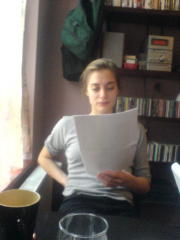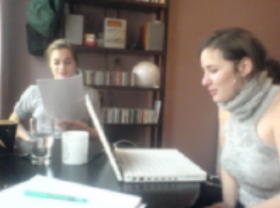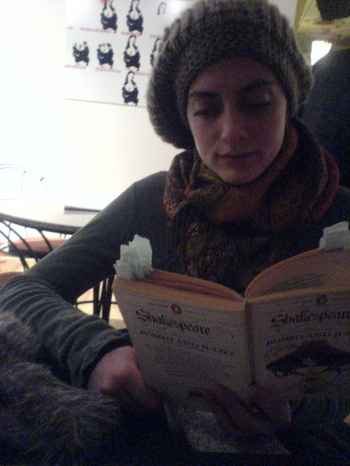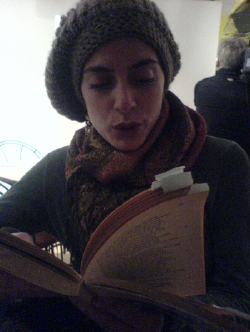As I was wondering about the costume It occured to me that I might research how Juliet has been dressed on stage in days past. After some reading and googeling I have come up with some visual material.
.
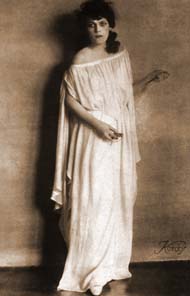 First of from 1918, Gizi Bajor as Julia in the production of the National Theatre of Budapest. Photograph taken by the Kardos Sisters.
First of from 1918, Gizi Bajor as Julia in the production of the National Theatre of Budapest. Photograph taken by the Kardos Sisters.
The dress is greek-style virgin white, with the happy dagger in her hand.
I love this image but it is not very Juliet like.
She looks older than I imagine Juliet to be.
But if this captures the dramatic moment of her waking from the dead, and realising that her tru love is dead, thus deciding to take her own life before people arrive, than this disturbed state, this final determination, this last push of will does stil come through with theatrical force and artistic expression.
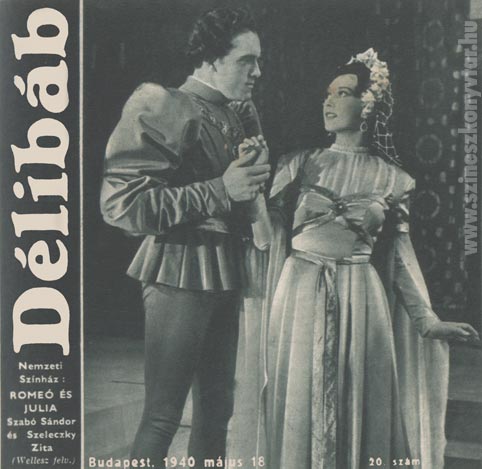
Than there is Zita Szeleczky from 1940, next to the oddest Romeo, this scene must be when they first meet, and the holy palmers kiss.
The costume is interesting.
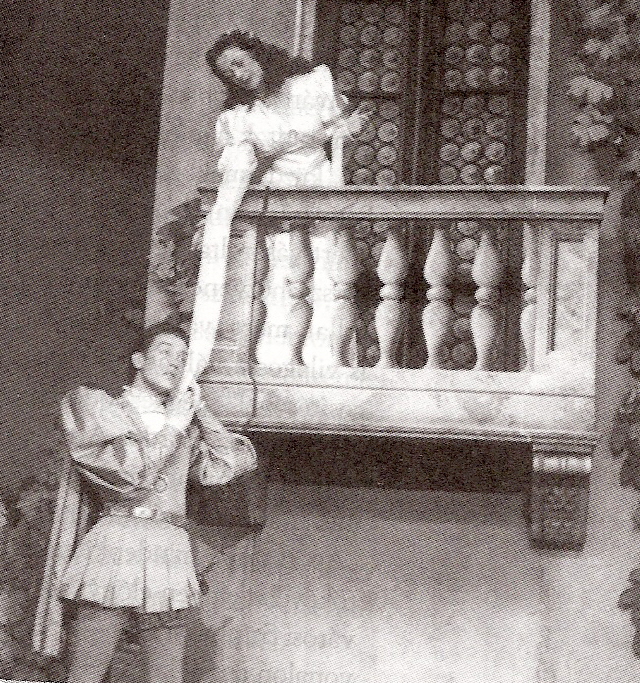
Only six years later in 1946and in the well-know balcony scene (come on boy, you can clim up there surely) Juliet is played by Alice Fenyes in the production of the Belvarosi Theatre. Romeo is the young Kallai Ferenc. Her costume is like an ugly wedding dress with humangous shoulderpads.
This is not a great quality picture, but again the lovers devotion and dreamy gestures shine through the black and white imagery.
Also note that this picture is probalay taken from the actual performance while the previous two were much posier, much more stattic, much more arranged from a photograpic perspective. Visual composition vs dramatic composition. Differeny kinestatics and esthatics.
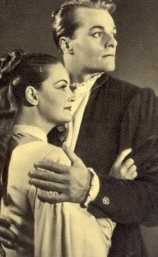
This performance is part of my living memoriy as well, starring Klari Tolnay and introducing the beautiful Ivan Darvas.
They fell in love and got married.
This phota is again very staged, in the conext of the plot it could be them watching the sunrise listening to the lark.
Hair and is much more sturctured, shiny an tidy, probably closer to 1953 style than the middle ages, the make up almost androgenous, simple yet quite stong.
The costume perhaps a bit more historic although it seems like a shot in the dark.
They look very good together you get bravery for the first time from a couple. Again older woman younger man does not seem to be an issu when casting the roles.
And I had some great pictures from the queen and king of Hungarian stage: Eva Ruttkai and Zoltan Latinovics, who were also truely in love and truely great.
I had a few glasses of Martini.

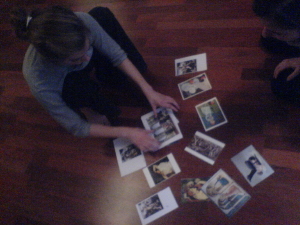

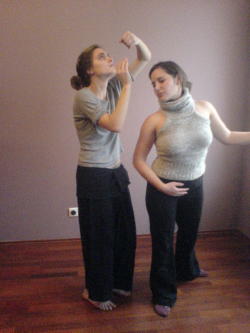
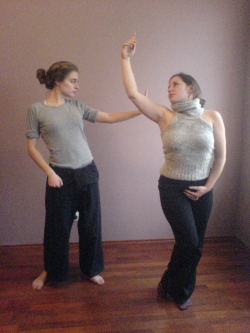
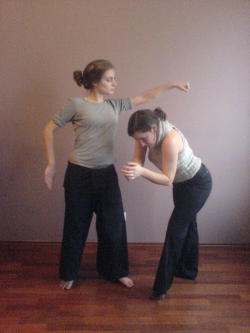
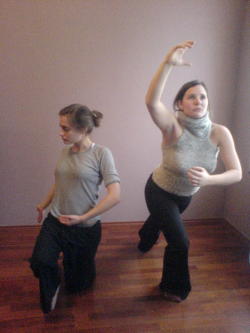
 First of from 1918, Gizi Bajor as Julia in the production of the National Theatre of Budapest. Photograph taken by the Kardos Sisters.
First of from 1918, Gizi Bajor as Julia in the production of the National Theatre of Budapest. Photograph taken by the Kardos Sisters.


